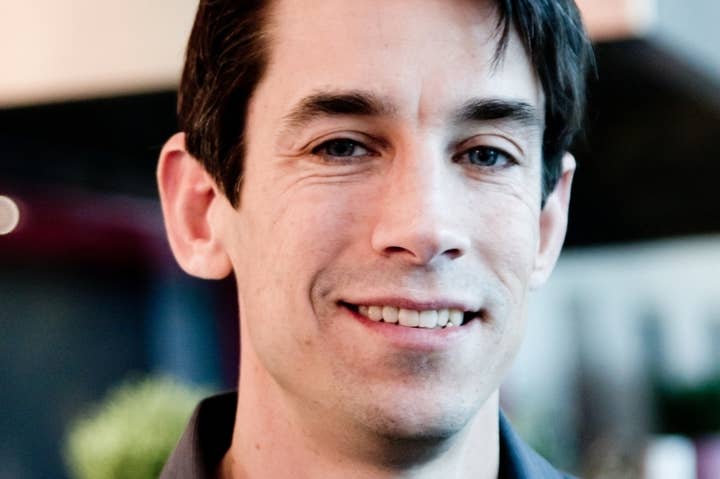Insomniac's keys to success: Trust and Ballz
Ted Price on the two (or three) attributes every creative team leader needs to embrace
After running Insomniac Games for the past 20 years, Ted Price had plenty of possible insights to bring up during his DICE summit presentation. He settled on two key concepts that he says are essential for effective leadership of creative teams: Trust and Ballz.
First off, a development leader needs to trust the team. Price said it's crucial to delegate tasks and, once delegated, allow other people to do the jobs they've been given. As a cautionary tale, he discussed the initial development process of the Resistance franchise, one in which he frequently found himself stepping in and second-guessing the work of the rest of the development staff. At the time he thought it was going well, but he was delegating authority to his creative leads and then overruling them on key issues. Price said he didn't realize how damaging that was until one of those creative leads stopped arguing with him on one particular change and just said, "I don't care anymore. Just tell me what you want me to do." If a leader doesn't trust the team, the team becomes disenfranchised, Price warned.
Trust within the team is also important, Price said. At Insomniac, that's done by creating transparency, fostering honest communications, and allowing mistakes. One of the biggest challenges with transparency is simply keeping the team informed of all the changes that go on with a AAA game on a daily basis. Insomniac has a variety of ways to address that, but Price said one of the simplest--just walking around the office and talking to other people about what's going on--is also the most effective.
People are often terrified of making mistakes and catching blame for failure, Price said, but fixing that starts at the top. To that end, Price said he always tries to admit his mistakes, a point that gave him another chance to talk about the first two Resistance games. Specifically, he talked about the decision in Resistance 2 to ditch the weapon-selection wheel, something that fans took great exception to. But it was his call, and he blew it, so Price said he used it as an example to his team that they too have permission to fail, to take a creative risk not knowing if it will pay off.
"A culture where mistakes are frowned on absolutely crushes creativity," Price said.
Moving to the Ballz portion of his talk, Price said that sort of boldness is required for three more essentials of creative leadership. First off, a leader needs to establish accountability. If you don't hold the people who aren't getting the job done accountable, Price said the people who are getting the job done will leave. One tool for increasing accountability is deadlines, but Price said they are a sledgehammer that could do as much harm as good if misused.
To address that, leaders must also be decisive. One of the biggest problems of the collaborative culture at Insomniac is that they take too much time to make decisions. At times, that has produced a sort of gridlock, Price said, but lately the team has been moving more to creating established hierarchies where certain people are responsible for certain parts of the game and need to make the final call on issues that fall under their purview.
Finally, a team wants to see vulnerability from its leaders. A tyrant can be decisive and enforce accountability, but it's not fun working for a tyrant. Price said creative leaders need to encourage their teams to approach them, to question their decisions or raise ideas. Leaders need to admit their mistakes, to take blame when appropriate, and to allow for the possibility that they could be wrong on various issues.
However, Price said there's an inherent conflict between the concepts of Trust and Ballz. If you delegate a responsibility to a person and that part of the project isn't coming together, how do you right the ship without taking away their authority over that area? Price said it's taken him a long time to get into the habit, but he's started to give his input on a topic, and then add "but it's the creative director's call." On top of that, he'll also try to approach people with a problem and letting them work it out instead of opening by giving his solution.
The third key concept that brings Trust and Ballz together is Courage. Price said it takes courage to do everything he talked about today.
"But it also takes courage to dream big," Price said, "and it takes courage to let others dream big with you."

